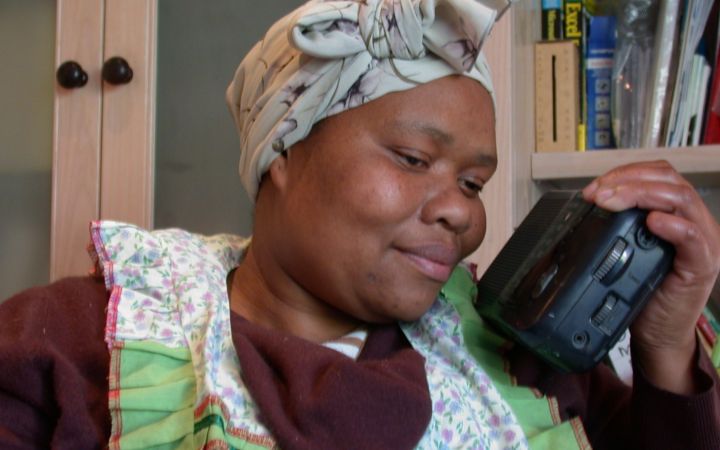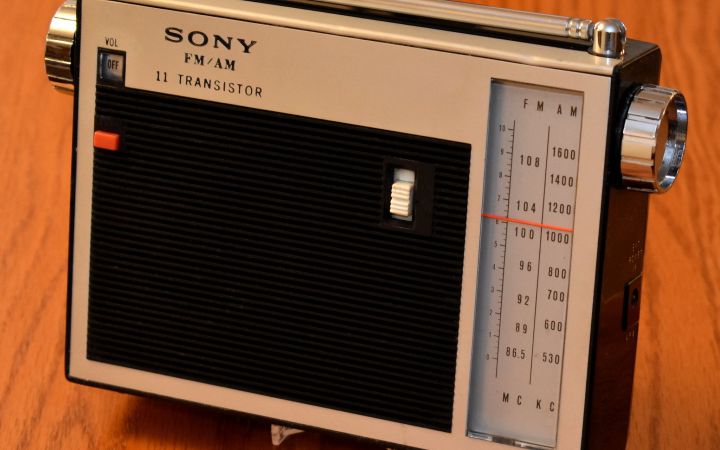As a child growing up in Namibia in the late 80s and early 90s, my earliest memory always has the sound of the radio in the background. That would be whether I was at home in town or while helping out in the fields while visiting the village. I vividly remember listening to Christmas carols or the liberation songs to commemorate the Namibian liberation struggle against apartheid on Independence / Heroes days. Radio has been a big part of my childhood, it was a source of information and entertainment. Through this mode of communication, we learned of far-off relatives either hospitalized or passed on before the diffusion of mobile phones. If there was one thing that was a constant in many households, from the well-off to the poor, it was a basic FM/AM radio. It was affordable and required minimal maintenance and their batteries lasted for weeks if not months. That was the reality for many in the Southern African region, and most probably the rest of the African continent. - Josefina Ashipala, UN CC:Learn
In Southern Africa, radio continues to be the primary means of mass-communication and a source of information and entertainment especially to young people and their families. It can reach both the well-off and the poor, young and old, educated and illiterate. This mode of communication provides programmes for all audiences, from listening to folktales or stories for kids to discussing relevant pressing societal issues. It also provides a platform for Early Warning Systems such as tracking the whereabout of the swarms of desert locusts that were devastating crops in the region in early 2021. More than a tool to share information, radio continues to be a key site for community-building and foster positive change.
The ongoing COVID-19 pandemic has made the importance of radio in sub-Saharan Africa particularly clear. In a context where access to the internet is limited, closing schools also meant that the education of many was put on hold. Radio changed that as it allowed students from all backgrounds to keep up with their studies.
In this spirit, a climate change radio programme "Our Changing Climate - Our Time to Act!" was created by the MIET Africa, UN CC:Learn Partnership and relevant environment Ministries as part of the COVID-19 emergency response in Malawi, Zambia and Zimbabwe. Between November 2020 and February 2021, 108 episodes were broadcast with an estimated reach of more than 27 million listeners from all ages across the three countries.
The 30-minute radio episodes fostered discussions around key climate change issues; practical ways of mitigating the impacts at country, community, family and individual levels; and calls to action for communities, families and individuals to do their part as friends of the earth. Listeners were also encouraged to join the discussions and take climate actions through weekly competitions. The winners won prizes that included solar-powered radios. A winner from Zambia said that the programme was very useful as it increased knowledge on climate change issues. For a teacher in Malawi, the content covered on the programme proved to boost his interest in environmental conservation and a way to supplement gaps in the syllabus of the current course curricula.
Additionally, a two-episode programme for TV was developed and broadcast in different languages in the countries with an estimated reach of over 5 million viewers across the 3 countries. Radio programme hosts opined that the programme was timely and that the experts had articulated the issues well, making the programme accessible and exciting while increasing listeners' interest and engagement. This new approach in mainstreaming climate change through radio programme is an effective way of providing information that can increase knowledge and change attitudes and behaviors of citizens. It particularly offers opportunities where internet connection is not stable and when countries started putting COVID-19 containment measures in place such as closure of schools and many key programs such as climate change education became very limited.








